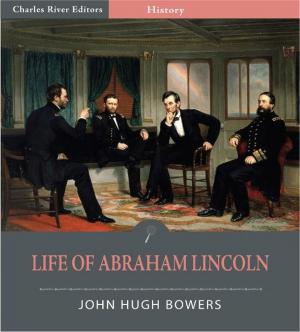General James Longstreet at Gettysburg: Account of the Battle from His Memoirs
Nonfiction, History, Americas, United States, Civil War Period (1850-1877), Military, 19th Century| Author: | James Longstreet | ISBN: | 9781619822559 |
| Publisher: | Charles River Editors | Publication: | February 6, 2012 |
| Imprint: | Language: | English |
| Author: | James Longstreet |
| ISBN: | 9781619822559 |
| Publisher: | Charles River Editors |
| Publication: | February 6, 2012 |
| Imprint: | |
| Language: | English |
One of the most important, and controversial, Confederate generals during the Civil War was Lieutenant General James Longstreet, Robert E. Lees old warhorse. Longstreet was Lees principal subordinate for most of the war, ably managing a corps in the Army of Northern Virginia. Longstreet was instrumental in Confederate victories at Second Bull Run, Fredericksburg, and Chickamauga, while he was also effective at Antietam and the Battle of the Wilderness, where he was nearly killed by a shot through the neck. Had Longstreet died on the field, he may have been one of the Souths biggest heroes. However, it was his performance at Gettysburg and arguments with other Southern generals after the Civil War that tarnished his image. Longstreet was charged with being slow to attack on the second day of the Battle of Gettysburg, allowing the Union to man Little Round Top. He also resisted Lees order for Picketts Charge the next day. The fact that he served in Republican administrations after the Civil War rubbed his former comrades the wrong way, and the Georgians criticism of Lee infuriated the Lost Cause advocates who idolized the Virginian Lee. Near the end of his life, Longstreet authored From Manassas to Appomattox, a Civil War memoirs that looked to rebut his critics. Longstreet didnt avoid his critics, facing them head on by fending off criticisms of his record for the most part, usually including letters written by other officers to his defense. Longstreet also didnt pull punches, which he does at times quite poignantly on Lee's mishaps, most notably of course at Gettysburg. In other instances, he defends himself by criticizing others. When Fitz Lee notes that R.E. Lee called Longstreet the hardest man to move in the Army (a comment that can't be confirmed/refuted), he comes to his own defense in part by criticizing Stonewall Jackson during the Seven Days campaign. Hindsight is 20/20, and Longstreet's arguments in the conduct of certain campaigns certainly benefited from the passing of 30 years. At a number of places, Longstreet believes that if his suggestions were followed, the results could have destroyed Union armies or won the War. Nobody will ever be sure if he's right or wrong on these matters.This edition covers Longstreet's account of the Battle of Gettysburg, including all the controversy and criticism. It includes a Table of Contents and pictures of the famous general.
One of the most important, and controversial, Confederate generals during the Civil War was Lieutenant General James Longstreet, Robert E. Lees old warhorse. Longstreet was Lees principal subordinate for most of the war, ably managing a corps in the Army of Northern Virginia. Longstreet was instrumental in Confederate victories at Second Bull Run, Fredericksburg, and Chickamauga, while he was also effective at Antietam and the Battle of the Wilderness, where he was nearly killed by a shot through the neck. Had Longstreet died on the field, he may have been one of the Souths biggest heroes. However, it was his performance at Gettysburg and arguments with other Southern generals after the Civil War that tarnished his image. Longstreet was charged with being slow to attack on the second day of the Battle of Gettysburg, allowing the Union to man Little Round Top. He also resisted Lees order for Picketts Charge the next day. The fact that he served in Republican administrations after the Civil War rubbed his former comrades the wrong way, and the Georgians criticism of Lee infuriated the Lost Cause advocates who idolized the Virginian Lee. Near the end of his life, Longstreet authored From Manassas to Appomattox, a Civil War memoirs that looked to rebut his critics. Longstreet didnt avoid his critics, facing them head on by fending off criticisms of his record for the most part, usually including letters written by other officers to his defense. Longstreet also didnt pull punches, which he does at times quite poignantly on Lee's mishaps, most notably of course at Gettysburg. In other instances, he defends himself by criticizing others. When Fitz Lee notes that R.E. Lee called Longstreet the hardest man to move in the Army (a comment that can't be confirmed/refuted), he comes to his own defense in part by criticizing Stonewall Jackson during the Seven Days campaign. Hindsight is 20/20, and Longstreet's arguments in the conduct of certain campaigns certainly benefited from the passing of 30 years. At a number of places, Longstreet believes that if his suggestions were followed, the results could have destroyed Union armies or won the War. Nobody will ever be sure if he's right or wrong on these matters.This edition covers Longstreet's account of the Battle of Gettysburg, including all the controversy and criticism. It includes a Table of Contents and pictures of the famous general.















